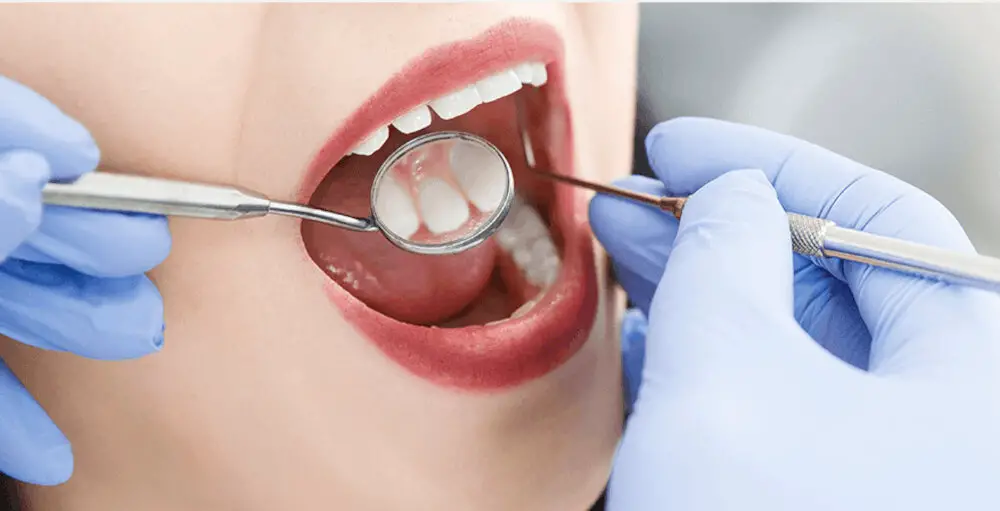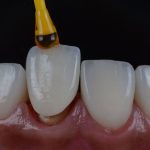Quick Relief: Understanding How Long Numbness Lasts After Wisdom Teeth Removal

Wisdom teeth removal is a common procedure that many people undergo in their lifetime. While it is a routine dental surgery, it can still cause discomfort and pain, particularly after the procedure. One of the most common side effects of wisdom teeth removal is numbness. Numbness after wisdom teeth removal is a temporary condition that can last for a few hours or several days. Understanding how long numbness lasts after wisdom teeth removal can help you prepare for the recovery process and alleviate any concerns you may have. The duration of numbness after wisdom teeth removal varies from person to person. Factors such as age, overall health, and the number of teeth removed can all affect how long the numbness will last. Generally, numbness after wisdom teeth removal is caused by the local anesthetic used during the procedure. The numbness typically fades away as the anesthetic wears off, but in some cases, it may take longer for the sensation to return. In this article, we will explore the causes of numbness after wisdom teeth removal, how long it typically lasts, and some tips for managing discomfort during the healing process.
Wisdom teeth removal is a common dental procedure that involves the extraction of the third molars located at the back of the mouth. The procedure is typically performed by an oral surgeon or a dentist under local anesthesia or sedation to ensure maximum comfort for the patient. During the procedure, the dentist will make an incision in the gum tissue to access the tooth, then remove it by loosening it from its socket. In some cases, the tooth may need to be broken into smaller pieces for easier removal. Once the tooth has been extracted, the dentist will place gauze over the area to help control bleeding and promote healing. After the procedure, the patient will be given instructions on how to care for the extraction site and manage any discomfort or swelling that may occur.
Wisdom teeth removal is a common dental procedure that usually leads to quick relief of pain and discomfort. However, as with any medical procedure, there are potential side effects that patients should be aware of. The most common side effects of wisdom teeth removal include swelling, pain, bleeding, and bruising. Numbness is also a possible side effect, which occurs when the nerves in the mouth are affected during the procedure. While numbness typically subsides within a few hours or days, it can sometimes persist for several weeks or even months, depending on the severity of the nerve damage. Patients should speak with their dentist or oral surgeon if they experience any unusual symptoms or side effects after wisdom teeth removal.
One of the most common side effects that patients experience after wisdom teeth removal is numbness, which can be a result of the anesthesia used during the procedure. It is important to understand that this numbness is usually temporary and will gradually subside over time. The duration of numbness can vary from person to person and can last anywhere from a few hours to several days. While it can be uncomfortable, it is typically not a cause for concern. It is important to follow your dentist’s instructions and take any prescribed pain medication to help manage any discomfort. If you experience prolonged numbness or any other concerning symptoms, it is important to contact your dentist or oral surgeon for further evaluation.
What Causes Numbness After Wisdom Teeth Removal?

Numbness after wisdom teeth removal is a common occurrence, and it can be attributed to a variety of factors. One of the primary causes of numbness after wisdom teeth extraction is the use of local anesthesia during the procedure. Local anesthesia is used to numb the area around the tooth to reduce pain and discomfort during the extraction process. However, this anesthesia can also cause numbness in the surrounding tissues for several hours after the procedure. In some cases, the numbness may persist for several days, depending on the amount of anesthesia used and the individual’s sensitivity to it. Another factor that can contribute to numbness after wisdom teeth removal is the swelling and inflammation that can occur in the surrounding tissues. Swelling can put pressure on the nerves in the area, which can cause temporary numbness and tingling sensations. In some cases, the swelling may also cause some temporary muscle weakness or difficulty in opening the mouth. This is a normal part of the healing process, and it usually resolves on its own within a few days. In rare cases, however, numbness and tingling sensations may persist for several weeks or even months after the procedure, indicating nerve damage or injury. In such cases, it is important to consult a dentist or oral surgeon immediately to assess the situation and determine the best course of treatment.
During a wisdom tooth extraction, the nerves that are commonly affected are the inferior alveolar nerve, the lingual nerve, and the long buccal nerve. The inferior alveolar nerve runs along the lower jawbone and provides sensation to the chin, lower lip, and gums on one side of the jaw. The lingual nerve provides sensation to the tongue and the floor of the mouth. Finally, the long buccal nerve is responsible for the sensation in the cheek area. These nerves can become damaged during the wisdom teeth removal process, leading to temporary or permanent numbness, tingling, or other sensory changes in the affected areas. It is important to be aware of these potential complications and to communicate any concerns with your dentist or oral surgeon.
Swelling and inflammation following wisdom teeth removal can have a significant impact on the nerves in the affected area. When there is swelling and inflammation, pressure is put on the nerves, which can cause numbness, tingling, or even pain. The nerves may also become irritated or compressed, leading to more severe symptoms such as neuralgia or paresthesia. In some cases, the nerves may be damaged, leading to long-term numbness or loss of sensation in the affected area. Therefore, it is important to manage swelling and inflammation after wisdom teeth removal to minimize their impact on the nerves.
Anesthesia plays a vital role in causing numbness during dental procedures such as wisdom teeth removal. It is a medical technique used to block the sensation of pain in a specific area of the body. The drugs used in anesthesia interfere with the nerve signals that transmit pain sensations to the brain, resulting in temporary numbness. This temporary loss of sensation is crucial during dental surgeries to ensure that the patient does not experience any discomfort or pain. The duration of numbness after wisdom teeth removal is dependent on the type of anesthesia used and the dosage administered.
How Long Does Numbness Last?

After wisdom teeth removal, numbness is a common sensation that can last for several hours or days. This numbness is usually caused by the local anesthetic used during the procedure, which can affect the nerves in the surrounding area. The duration of numbness can vary from person to person, depending on various factors such as the type of anesthesia used, the complexity of the extraction, and the individual’s healing ability. Typically, the numbness lasts for a few hours after the procedure and gradually fades away as the anesthesia wears off. However, in some cases, the numbness can last for several days or even weeks, especially if the nerves have been damaged during the extraction. It is crucial to note that prolonged numbness after wisdom teeth removal can be a sign of nerve damage, which requires immediate medical attention. If you experience persistent numbness, tingling, or loss of sensation in your lips, tongue, or chin, you should contact your dentist or oral surgeon immediately. They may need to perform an evaluation to determine the cause of the numbness and provide appropriate treatment. In most cases, nerve damage can be managed effectively with medication, physical therapy, or surgery, depending on the severity of the condition. Therefore, it is essential to seek prompt medical attention if you experience any persistent numbness after wisdom teeth removal.
The duration of numbness after wisdom teeth removal can vary greatly from person to person, depending on various factors such as age, overall health, and surgical technique used. Typically, the numbness lasts for a few hours to a few days, with most patients experiencing full sensation return within 24 hours. However, in some cases, it can take up to several weeks or even months for complete sensation to return. It is important to follow the post-operative instructions given by your dentist or oral surgeon to ensure proper healing and minimize the risk of complications that could prolong numbness.
There are various factors that can influence the duration of numbness after wisdom teeth removal. The complexity of the extraction procedure, the severity of the impaction, the type of anesthesia used, and the individual’s metabolism and healing process can all play a role in determining how long numbness lasts. Additionally, some patients may experience temporary nerve damage, which can prolong the duration of numbness. It is important to follow post-operative instructions carefully and to communicate any concerns with the dental professional to ensure a smooth and successful recovery.
While numbness is a common side effect after wisdom teeth removal, it usually goes away within a few hours or days. However, if the numbness persists for an extended period, it may be a cause for concern. Prolonged numbness may indicate nerve damage, which can result in permanent loss of sensation or movement. Therefore, if you experience numbness beyond the expected recovery period or have other symptoms like pain, swelling, or infection, it’s crucial to contact your dentist or oral surgeon immediately. They can assess your condition and provide appropriate treatment to prevent further complications.
Tips for Quick Relief of Numbness

Experiencing numbness after wisdom teeth removal is common, but it can be uncomfortable and even painful at times. Fortunately, there are several tips that can provide quick relief from numbness. Firstly, massaging the affected area with a warm compress can help stimulate blood flow and reduce numbness. It’s important to make sure the compress is not too hot, as this can cause burns and further discomfort. Additionally, gently stretching and moving the jaw can help improve blood flow and reduce numbness as well. Another effective method for relieving numbness is to consume spicy foods or drinks that contain capsaicin. Capsaicin works to stimulate blood flow and can help speed up the healing process, reducing the duration of numbness. However, it’s important to avoid consuming anything too hot or spicy, as this can cause further irritation to the affected area. Keeping hydrated and maintaining a healthy diet can also help reduce numbness and speed up the healing process. In some cases, over-the-counter pain relievers may be recommended by a healthcare professional to help manage discomfort and provide quick relief from numbness.
Numbness is a common symptom experienced after wisdom teeth removal, and it can be bothersome and uncomfortable. However, there are ways to alleviate it. Applying ice packs to the affected area can help reduce swelling and numbness. Additionally, taking over-the-counter pain medications such as ibuprofen or acetaminophen can help relieve discomfort. Gentle exercises and stretching of the jaw muscles can also help promote blood flow and reduce numbness. It is important to follow the aftercare instructions provided by your dentist or oral surgeon to ensure a smooth recovery and minimize the duration of numbness.
After wisdom teeth removal, it is important to avoid certain foods and drinks to ensure a smooth healing process. Hard and crunchy foods such as chips, nuts, and popcorn should be avoided as they can get stuck in the extraction site and cause irritation. Additionally, acidic and sugary foods and drinks such as citrus fruits, soda, and candy can also be harmful as they can lead to inflammation and delay the healing process. It is best to stick to soft and easy-to-chew foods such as mashed potatoes, soup, and smoothies for the first few days after the procedure. Drinking plenty of water and avoiding straws can also help in preventing any complications or discomfort.
Following postoperative instructions is crucial for a successful recovery after wisdom teeth removal surgery. These instructions are provided by the dentist or oral surgeon and are designed to help patients manage pain, reduce the risk of complications, and speed up the healing process. It is important that patients adhere to these guidelines, which may include avoiding certain foods, taking prescribed medications, applying ice packs, and rinsing with saltwater. Failure to follow postoperative instructions can result in prolonged pain, bleeding, infection, and other complications that can delay the healing process. Therefore, it is essential that patients take these instructions seriously and follow them closely to ensure a smooth and speedy recovery.
After wisdom teeth removal, numbness is a common side effect that can occur due to damage or irritation to the nerves during the procedure. The numbness usually lasts for a few hours to a few days, but in some cases, it can persist for several weeks or even months. The duration of numbness depends on various factors such as the complexity of the extraction, the location of the teeth, the individual’s age, and the type of anesthesia used. Numbness after wisdom teeth removal can be uncomfortable and cause difficulty in speaking, eating, and drinking, but it is generally a temporary condition that resolves on its own. However, if the numbness persists for an extended period, it is recommended to consult with a dentist or oral surgeon to evaluate the condition and determine the appropriate treatment.
Numbness after wisdom teeth removal is a common occurrence that can last for varying periods depending on the complexity of the extraction. While it may be tempting to wait it out, seeking professional advice is crucial if the numbness persists beyond the expected time frame. Prolonged numbness may indicate nerve damage, which requires immediate attention from a dental specialist. Failure to seek professional advice and treatment may lead to permanent nerve damage, affecting jaw movement, speech, and facial muscles. It is essential to prioritize your oral health and seek professional advice to ensure that any complications are promptly addressed for optimal recovery.
If you’re experiencing numbness after wisdom teeth removal, it’s important to take certain steps to find relief. Firstly, make sure to follow your dentist or oral surgeon’s instructions carefully, including taking any prescribed pain medications and using ice packs to reduce swelling. Additionally, try to avoid activities that could cause further irritation to the area, such as smoking or drinking alcohol. Gentle exercises and stretches can also help improve blood flow and reduce numbness. Finally, if your numbness persists for longer than expected, don’t hesitate to contact your dentist or oral surgeon for advice on next steps. By taking these steps, you can help minimize discomfort and ensure a smooth recovery process.
Conclusion

In conclusion, numbness after wisdom teeth removal is a common side effect that can last for varying lengths of time. It is essential to understand that the duration of numbness depends on several factors, including the complexity of the extraction, the number of teeth removed, and the individual’s healing ability. However, it is crucial to follow the post-operative instructions provided by the dentist or oral surgeon to ensure a speedy recovery. Patients should also report any prolonged numbness or other abnormal symptoms to their healthcare provider promptly. Overall, with proper care and attention, patients can experience quick relief and return to their daily activities comfortably.







